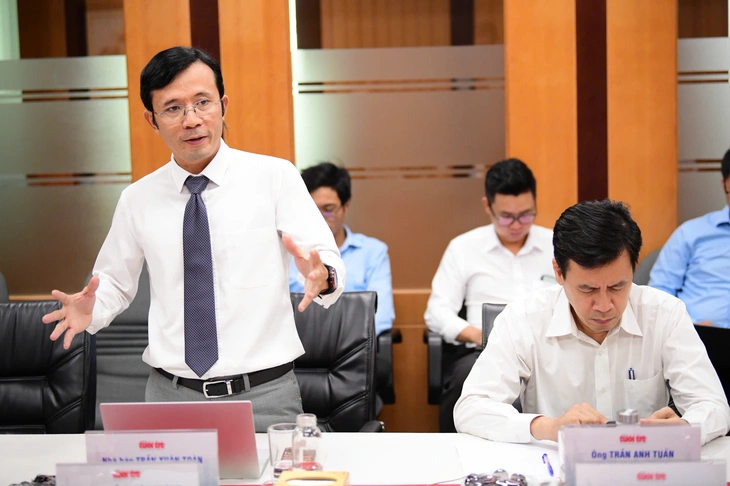
Journalist Tran Xuan Toan - Deputy Editor-in-Chief of Tuoi Tre Newspaper - speaking at the discussion on the afternoon of August 15 - Photo: QUANG DINH
Opening the discussion, journalist Tran Xuan Toan - deputy editor-in-chief of Tuoi Tre newspaper - said that in the context of Vietnam aiming to celebrate the 80th anniversary of National Day and the goal of becoming a high-income country by 2045, the need for capital for infrastructure is huge and mobilizing private resources is inevitable.
The mechanism is there, just waiting to accelerate.
Mr. Toan raised the issue that we have Resolution 68 considering the private economy as an important driving force, paving the way for private investment. The issue is how to effectively translate policy into practice?
Currently, there are many transport infrastructure projects proposed by the private sector, such as the North-South high-speed railway with about 7-8 investors, or capital contribution to urban railway routes in Ho Chi Minh City...
Therefore, Tuoi Tre newspaper hopes to listen to the sharing from the practical perspective of experts and businesses, to convey into articles as a reference basis for authorities.
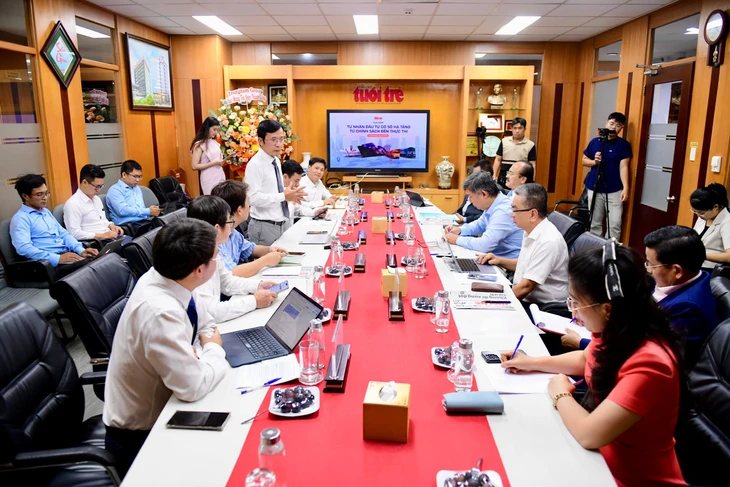
The discussion took place at Tuoi Tre newspaper on the afternoon of August 15 - Photo: QUANG DINH
Mr. Tran Anh Tuan - National Assembly delegate of Ho Chi Minh City - said that Resolution 68 or Resolution 198 has clearly affirmed the role of the private economy. Currently, state resources for development investment are still limited, accounting for only about 1/4 of total social investment capital.
To achieve the minimum growth target of 10%/year, development investment capital needs to reach 30-45% of GRDP, including "seed" capital from the budget. This requires strong mobilization of social resources, especially from the private sector.
The mechanism needs to be more open, for example, in projects invested by the State with budget, it is possible to appoint qualified private corporations to participate in the form of limited bidding.
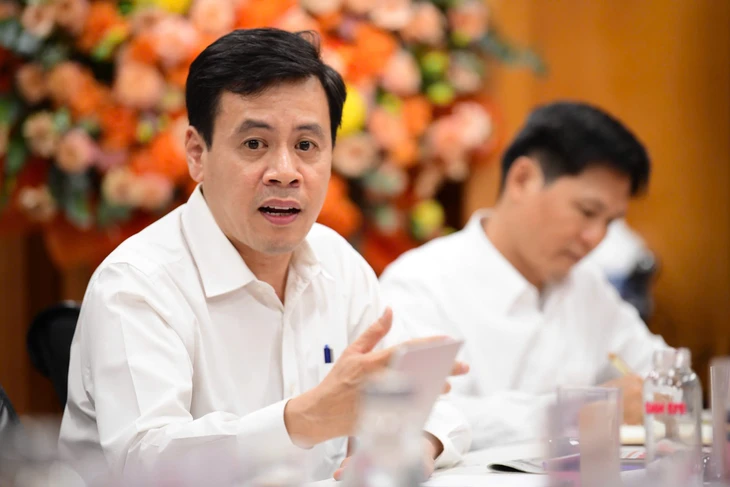
Mr. Tran Anh Tuan - National Assembly delegate of Ho Chi Minh City - Photo: QUANG DINH
"We need to soon legalize resolutions and specify policies. For example, what incentives will railway investors enjoy, how can land be exploited according to the TOD model, and there must be detailed planning for each station," said Mr. Tuan.
Mr. Tuan added that it is necessary to shorten the procedures for selecting investors and apply credit support policies such as the State providing capital with 0% interest rate for enterprises to implement projects. The goal is to create a favorable investment environment and attract capable investors.
Mr. Nguyen Pham Thanh Huy, representative of the Ho Chi Minh City Department of Finance, said that the merger both opens up opportunities and poses challenges as each locality previously had its own development plan and is still adjusting to fit the overall plan.
According to him, attracting private resources to invest in infrastructure is an inevitable trend, but it needs seed capital from the state budget to activate it.
There is currently a legal framework for public investment and public-private partnerships (PPP), of which BOT is the most popular with the private sector, but there are still many risks; the PT form and the transport-oriented urban development model (TOD) are also receiving attention. However, in reality, the PPP appraisal process is still prolonged, since the merger until now, no project has been approved.
Mr. Huy emphasized that the biggest bottleneck of current public investment projects is site clearance. Even if the private sector participates, they cannot replace the State in this step, so it needs to be resolved first.
Ho Chi Minh City is adjusting some contents according to Resolution 98, to turn seed capital into a force to attract private capital, avoiding resources existing only on paper.
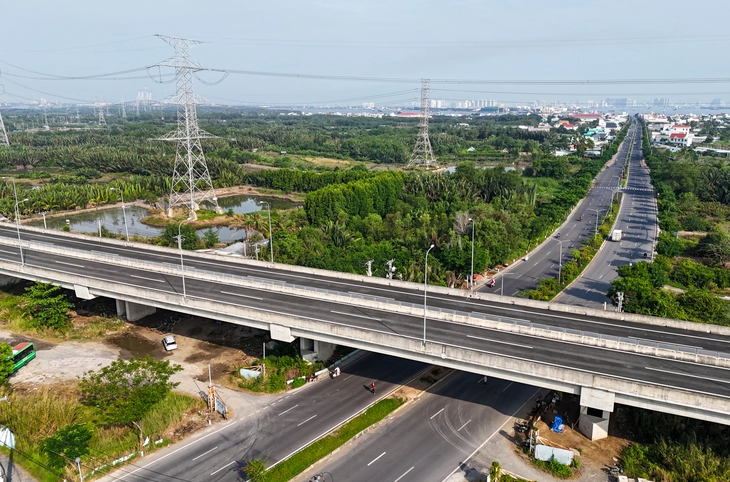
A proposed private railway project will shorten travel time between the center of Ho Chi Minh City (District 7) and Can Gio - Photo: CHAU TUAN
Solutions to turn policy into practice
At the discussion, Mr. Tran Xuan Thanh - Fulbright University - said that the biggest weakness in implementing infrastructure projects does not lie in capital, but in institutions.
Mr. Thanh proposed two institutions to break through for the private economy. First, consider allowing private enterprises to manage projects, instead of just being investors. However, currently in Vietnam there is no legal policy related to this issue. The State can hire private enterprises to manage the project, and when completed, hand it over to the State.
Second, Mr. Thanh proposed to make project bonds. For infrastructure projects that identify TOD policies, build a legal framework for land use rights even when the site has not been cleared, to ensure project bonds (which are assets for private individuals to make bonds). Then the land fund will be auctioned, the proceeds will be paid for the bonds.
Mr. Vo Quoc Thang - Chairman of Dong Tam Group's Board of Directors - said that localities need to publish land price lists and adjust them annually to closely follow market fluctuations, both to be transparent and to create favorable conditions for businesses.
Mr. Thang shared that transport infrastructure is a passionate field. Regarding the Long An port project that Dong Tam is working on, it was initiated from the will of "clear roads, clear resources" with infrastructure, the economy will develop.
After more than 30 years of capital accumulation, the company is now qualified to invest, although it knows it will be difficult to recover early. The port currently has a loading and unloading capacity of about 35 million tons/year, contributing to reducing logistics costs and promoting regional trade.
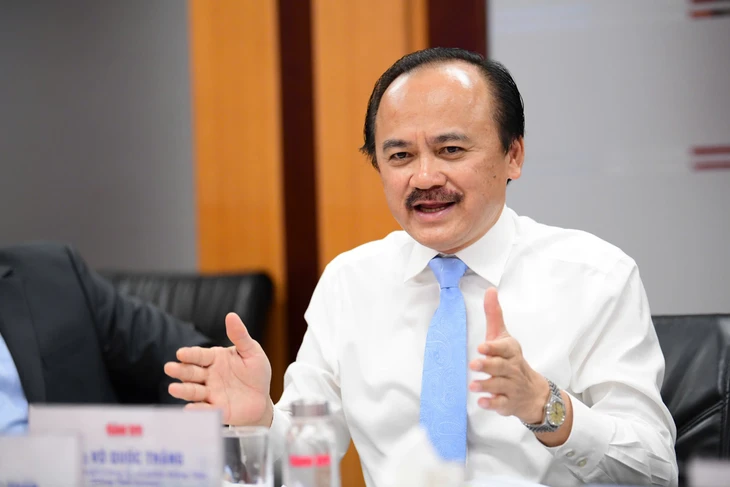
Mr. Vo Quoc Thang - Chairman of the Board of Directors of Dong Tam Joint Stock Company (Dong Tam Group) - Photo: QUANG DINH
However, Mr. Thang said that investment in waterway transport in Vietnam, especially in the Red River Delta and Mekong River Delta, is still too little. Limited dredging of waterways means that 70,000-ton ships still have to unload and share their loads to enter Long An port.
Meanwhile, port cluster 4 including Long An port has been planned to transship goods for the entire region.
"To make businesses feel secure in investing, it is necessary to create a transparent and stable environment, ensuring capital safety for investors," Mr. Thang emphasized.
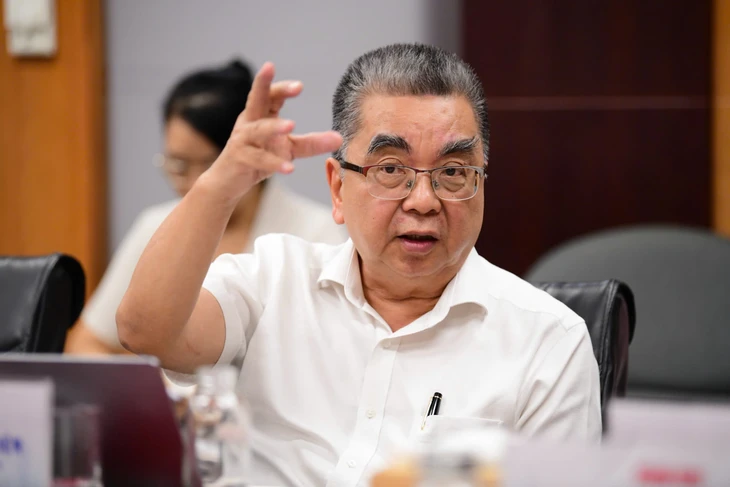
Associate Professor, Dr. Nguyen Ngoc Dien - Ho Chi Minh City University of Economics and Law - Photo: QUANG DINH
Speaking at the seminar, Associate Professor Dr. Nguyen Ngoc Dien - Ho Chi Minh City University of Economics and Law, also said that when allocating land or capital to enterprises, the State must ensure legal safety so that enterprises do not face risks from the procedures and contractual terms.
In fact, if land and capital allocation is not in accordance with regulations, businesses will encounter difficulties in project implementation.
He emphasized that regardless of the form of investment, partnerships with the private sector need to be clear in terms of legality, assets, and rights and obligations. Avoid situations where the State nominally cooperates with businesses but the mechanism is ambiguous, creating a risky "interface" for the private sector.
In many countries, with PPP or BOT projects, the State directly signs contracts with enterprises and takes full responsibility as the contracting entity. This approach helps private partners feel secure in participating, because their rights and commitments are clearly guaranteed by law.
Forming a business shaping group
Mr. Trinh Tien Dung - Chairman of the Board of Directors and General Director of Dai Dung Group - said that the enterprise is participating in a number of projects and traffic infrastructure works abroad. According to him, Dai Dung Group in particular and many other private enterprises in Vietnam are fully capable of constructing large-scale traffic infrastructure projects in the country.
Mr. Dung believes that the assembly and construction of future items, from steel structures, tunnels, foundations, stations, etc., can all be undertaken by Vietnamese enterprises. When necessary, units are ready to buy or rent additional components and specialized equipment from abroad. However, to ensure efficiency, a professional project management department according to international standards is needed, capable of coordinating multiple contractors at the same time, ensuring resources, progress and quality.
Mr. Dung emphasized: "We need to boldly give domestic contractors autonomy and localize equipment and locomotives so as not to incur additional costs for equipment rental. It is important that Vietnam masters the technology, helping with long-term operation and saving for society."
He proposed that there should be a mechanism to prioritize bidding for domestic enterprises, and encourage private investment through various forms, including bond issuance. Reality shows that social capital is abundant, but the mechanism is still inadequate. In addition, the bidding process needs to have commitment and consistency between tasks; avoiding policy changes that cause risks and hinder business development.
According to Mr. Dung, the State should play a leading role in shaping a group of domestic enterprises to join forces, pool capital, and cooperate to have enough resources and take advantage of the strengths of each unit. Price checking, auctioning, and selecting subcontractors also need to be synchronized in technology and ensure quality.
"Currently, the State has many support policies through resolutions, but it is still necessary to review and supplement specific legal instructions to avoid violations and shorten investment time," said Mr. Dung.
Also at the seminar, Mr. Le Thanh Liem - Dai Quang Minh Real Estate Investment Joint Stock Company said: "As a business that has been implementing many large projects recently, our biggest concern is that the procedures have not been smooth during the project implementation process.
Because a procedure that takes too long will push businesses into difficulties and cause projects to stagnate. Therefore, businesses hope that the State will continue to accompany and continue to issue enough procedures and standards, shortening the process so that businesses can feel secure in the process of participating in project implementation," said Mr. Liem.
Mr. Nguyen Xuan Thanh - Fulbright University Vietnam - added that it is necessary to establish a reserve fund for infrastructure investment, so that the State has resources to fulfill its responsibilities when risks arise. He cited the case of the previous Phu My bridge, Cai Lay BOT or the State's delay in handing over the site, which is the State's fault and needs to be responsible for compensation.
This reserve fund should be outside the budget, and when spent it should not be considered a budget loss, to ensure flexibility and timely support for businesses.
Low bids are not selected.
Mr. Trinh Tien Dung - Chairman of the Board of Directors and General Director of Dai Dung Group - cited an example in Japan: when a business bids at a price lower than the average price, the authorities will invite it to explain the reason. The principle here is that the contractor must ensure a minimum profit of 5%. If it is lower, it will pose risks, creating a burden for banks and the financial system when the business is not profitable.
He believes that it is necessary to form groups of businesses to lead the market, have the same direction, assign main and supporting roles and share the work reasonably, instead of competing by lowering prices at all costs.
Resolution 68 "green light" for private economy
Issued on May 4, 2025, Resolution 68-NQ/TW of the Politburo identifies the private economy as an important driving force of the economy. The document proposes a series of solutions for private enterprises to participate more strongly in key areas, including transport infrastructure and logistics.
Source: https://tuoitre.vn/toa-dam-bao-tuoi-tre-mo-duong-bang-cho-tu-nhan-lam-ha-tang-2025081514225254.htm



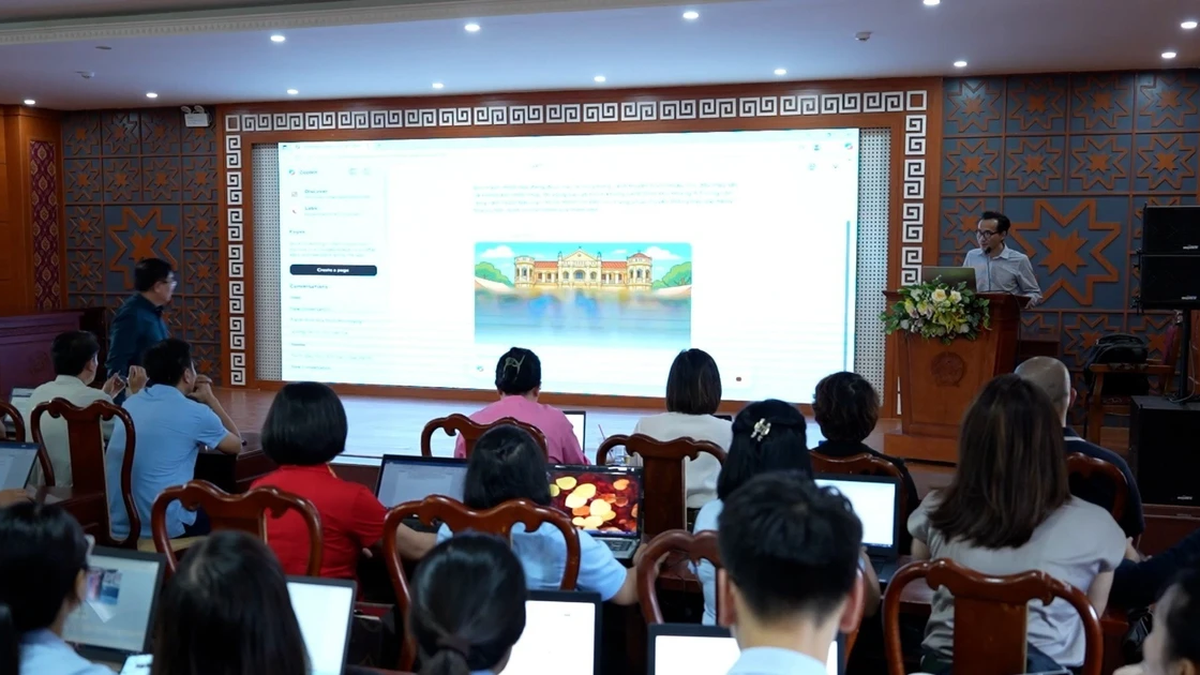
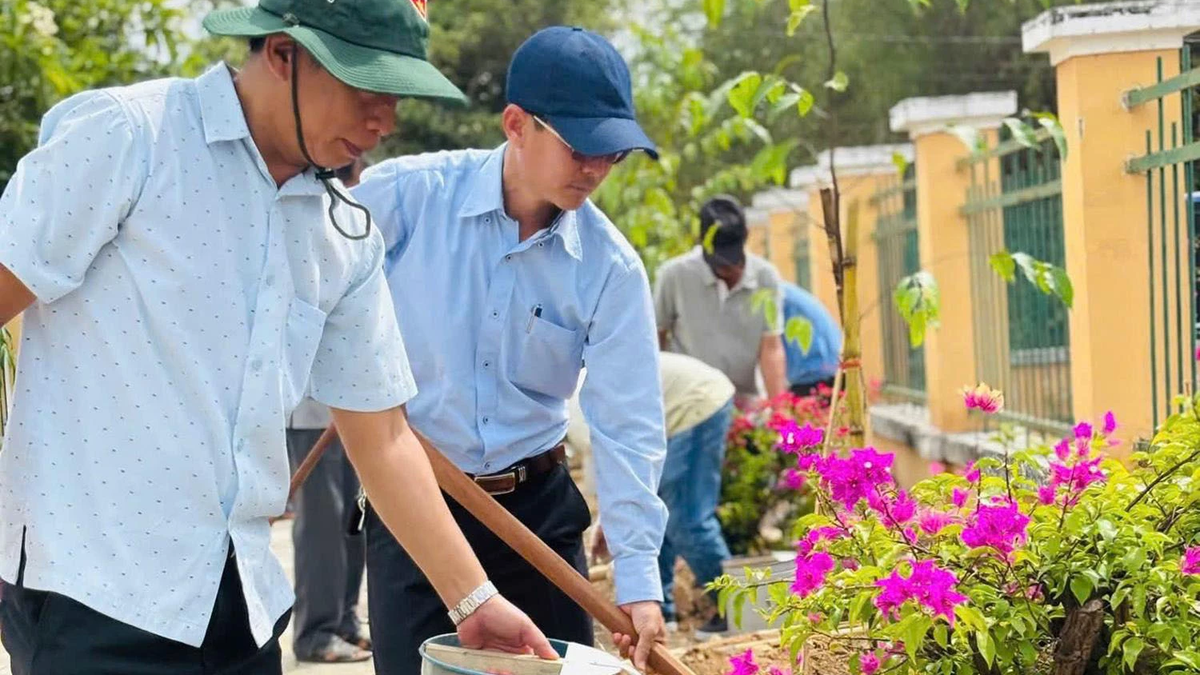

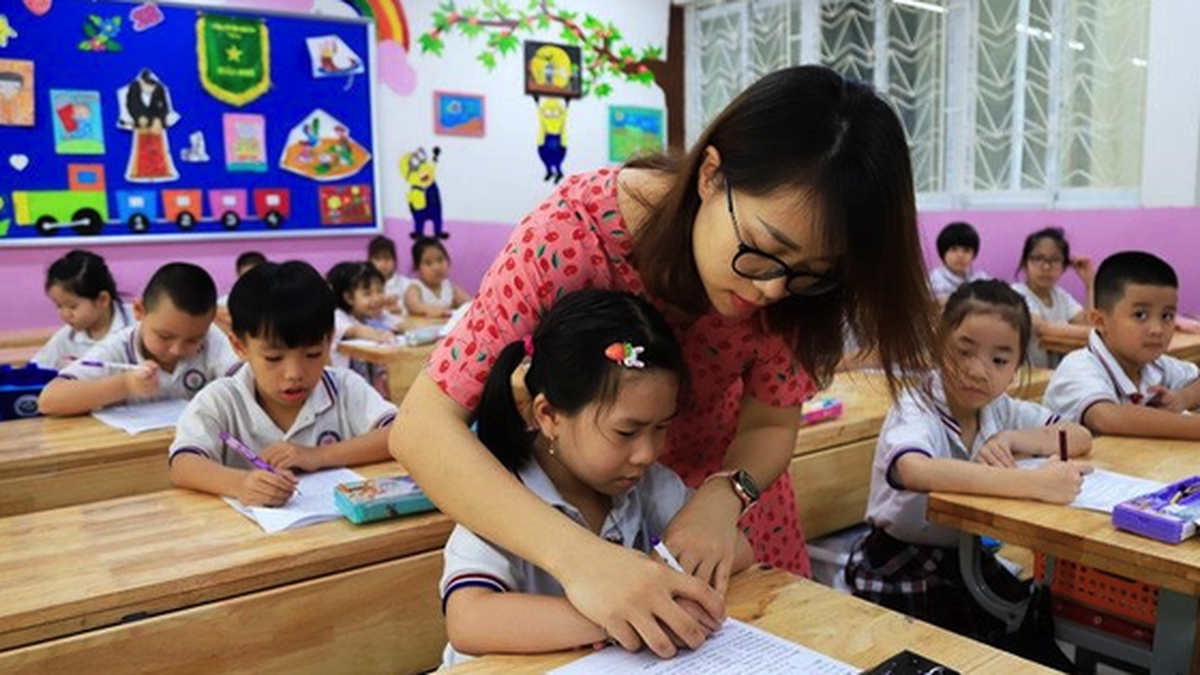
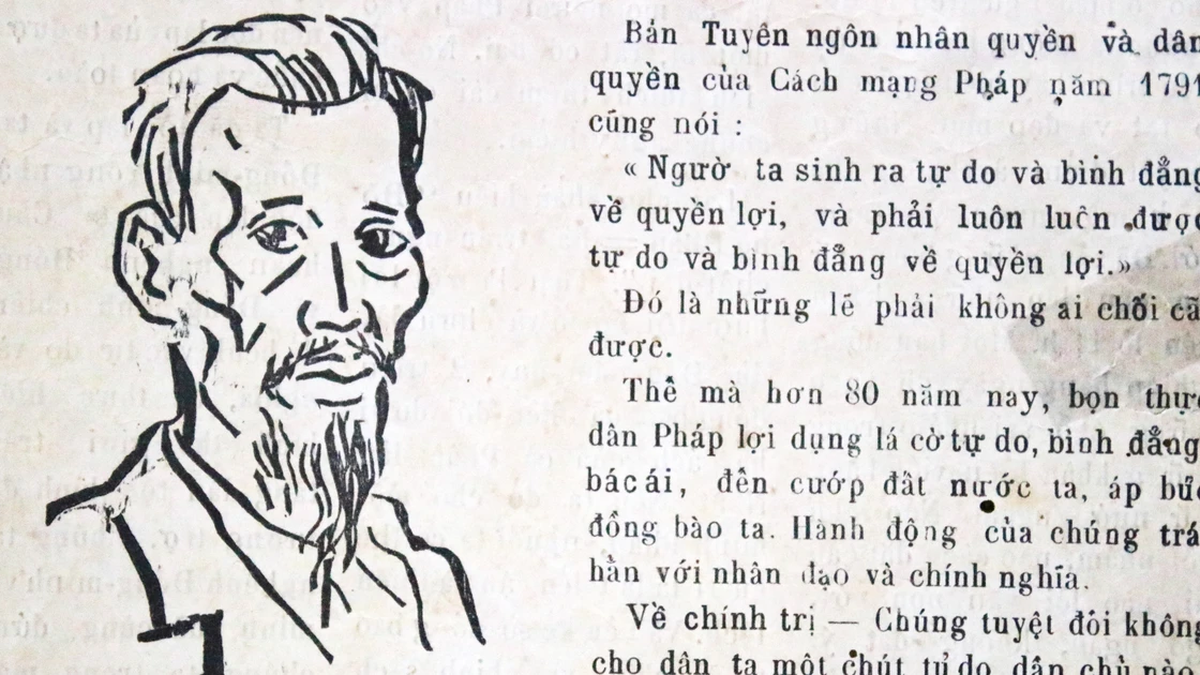

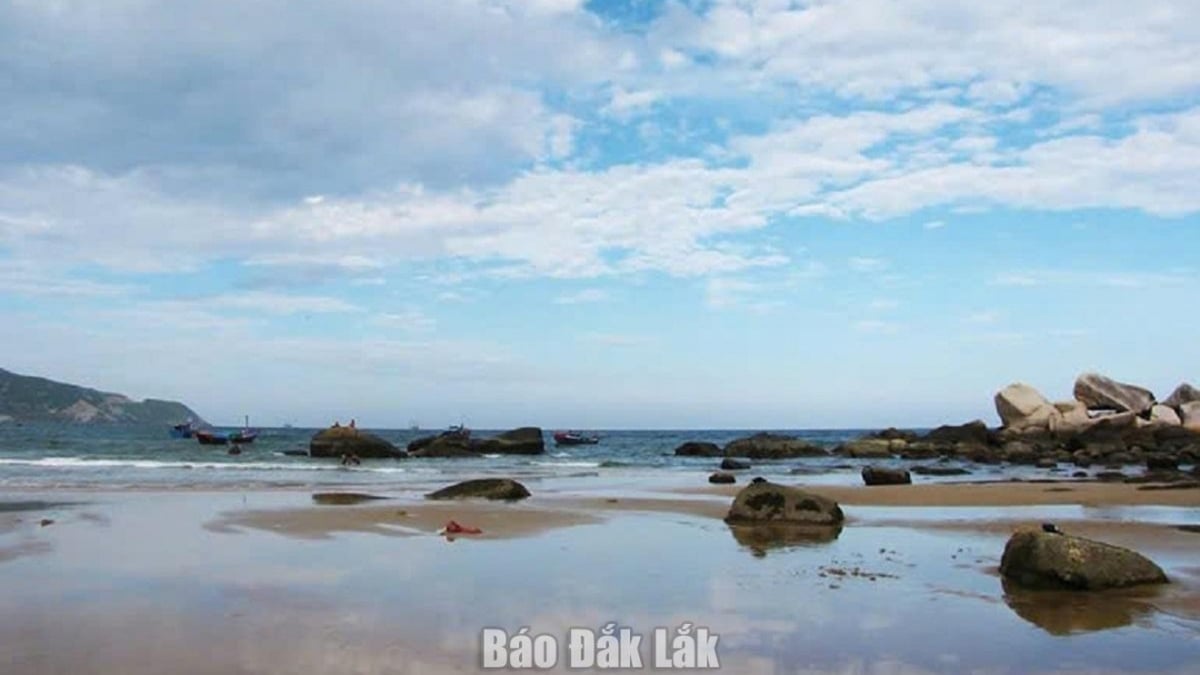
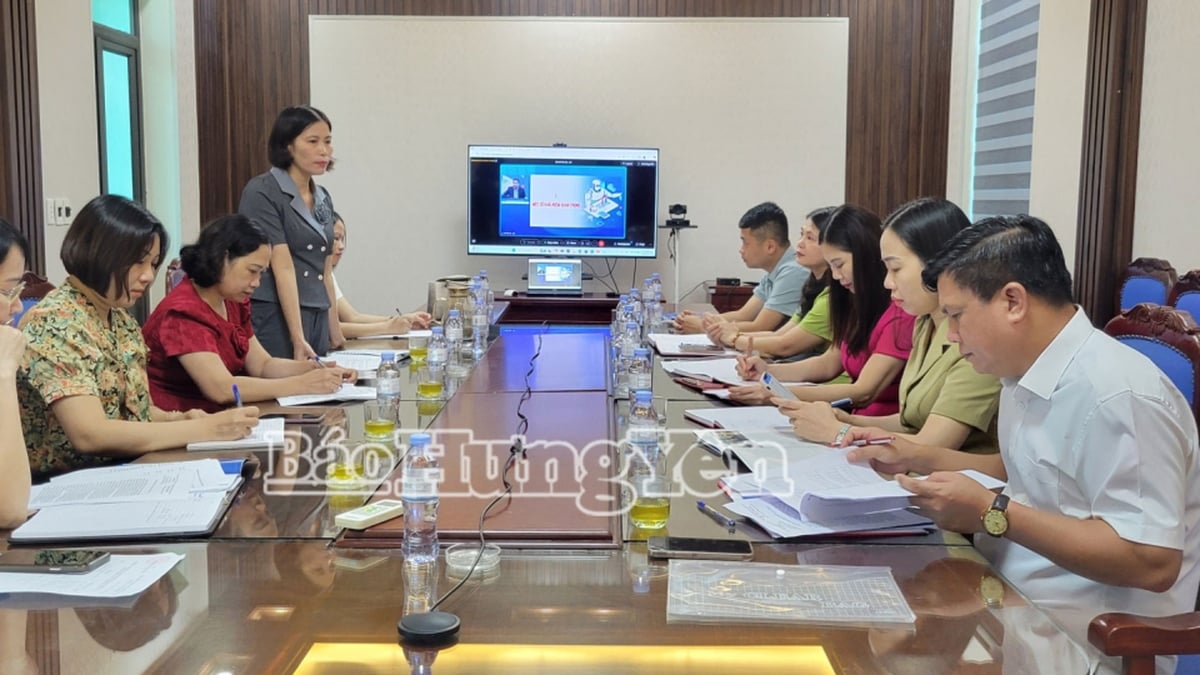













![[Photo] Binh Khanh Bridge Ho Chi Minh City is ready to reach the finish line](https://vphoto.vietnam.vn/thumb/1200x675/vietnam/resource/IMAGE/2025/8/14/b0dcfb8ba9374bd9bc29f26e6814cee2)
![[Photo] Prime Minister Pham Minh Chinh talks on the phone with Cambodian Prime Minister Hun Manet](https://vphoto.vietnam.vn/thumb/1200x675/vietnam/resource/IMAGE/2025/8/15/72d3838db8154bafabdadc0a5165677f)
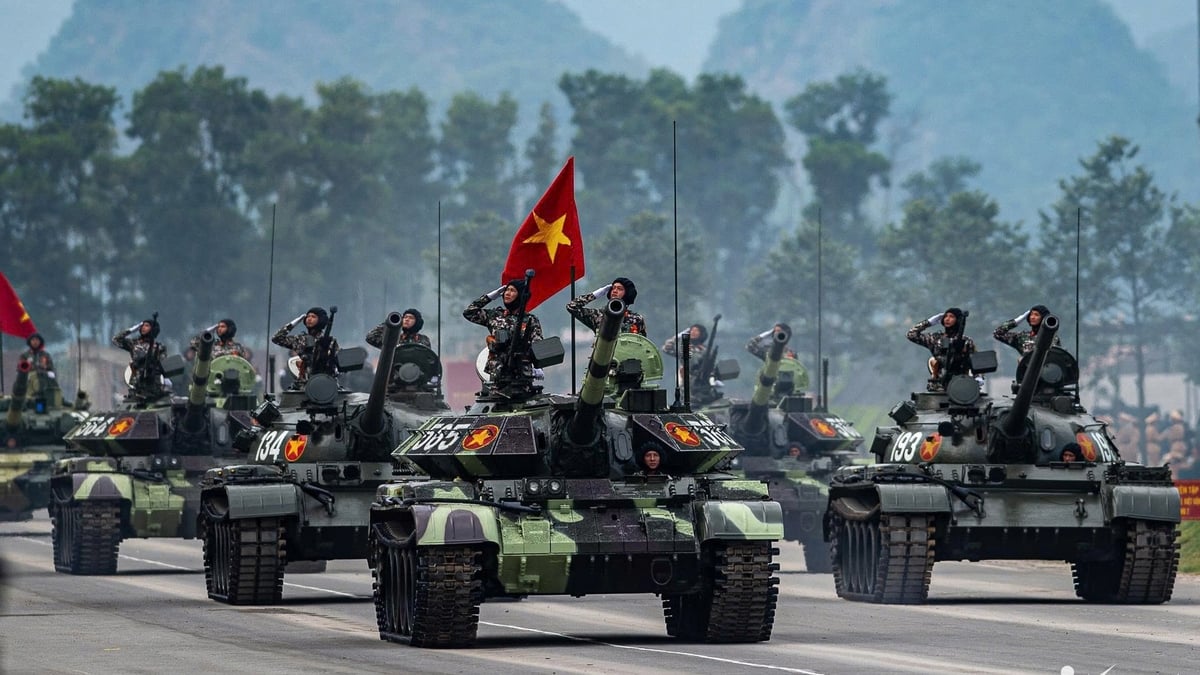


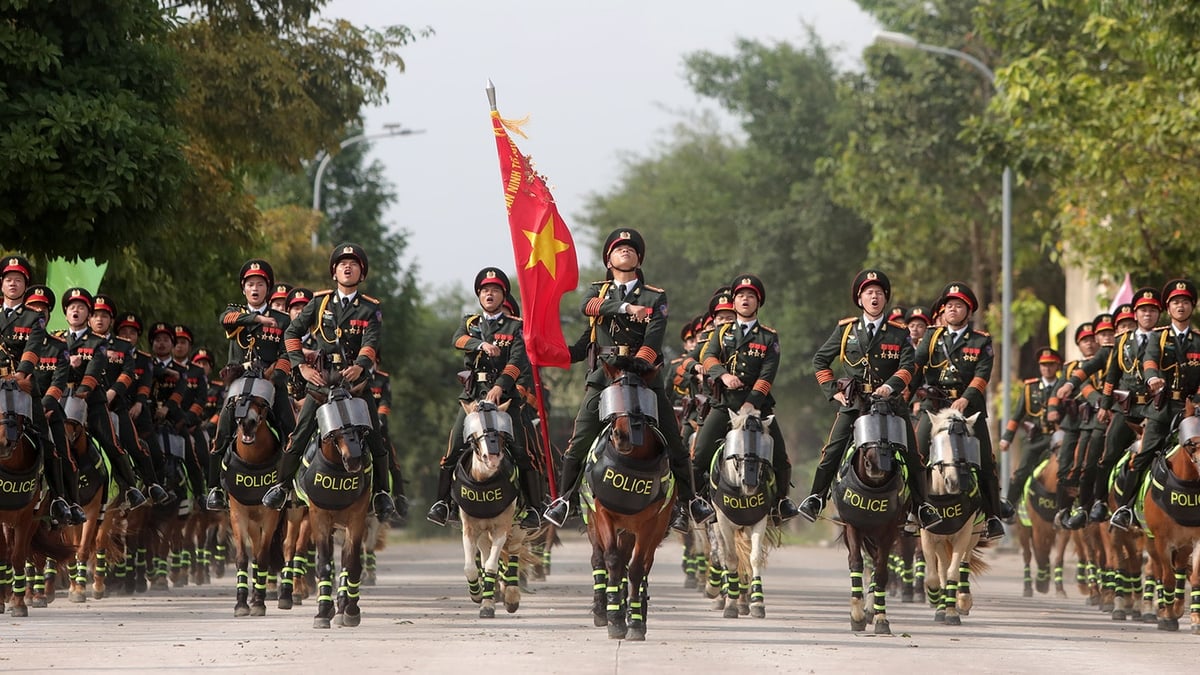
![[Photo] Firmly marching under the military flag: Ready for the big festival](https://vphoto.vietnam.vn/thumb/1200x675/vietnam/resource/IMAGE/2025/8/15/86df2fb3199343e0b16b178d53f841ec)
![[Photo] The special solidarity relationship between Vietnam and Cuba](https://vphoto.vietnam.vn/thumb/1200x675/vietnam/resource/IMAGE/2025/8/15/5f06c789ab1647c384ccb78b222ad18e)

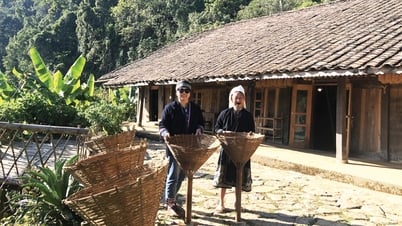












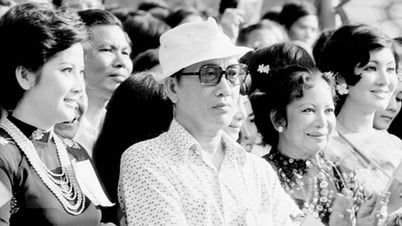





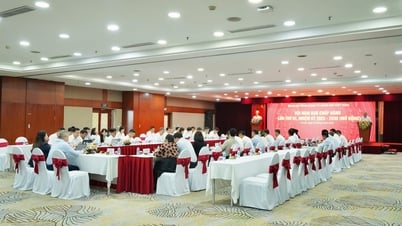




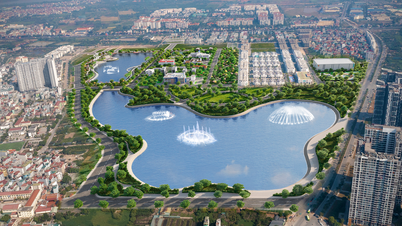
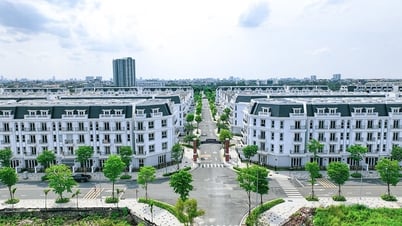


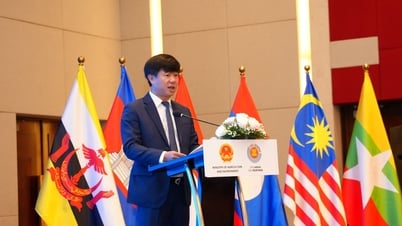

![[Photo] President Luong Cuong receives Finnish Ambassador to Vietnam Keijo Norvanto](https://vphoto.vietnam.vn/thumb/402x226/vietnam/resource/IMAGE/2025/8/15/9787f940853c45d39e9d26b6d6827710)
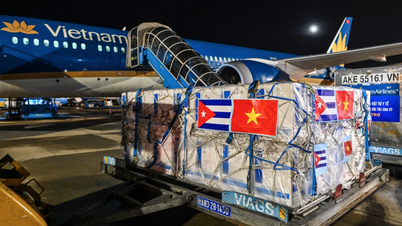

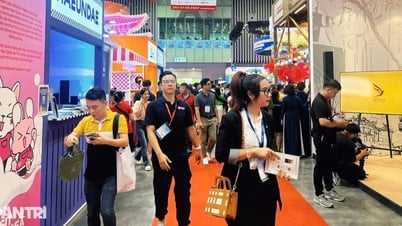


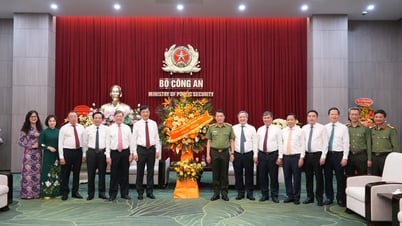



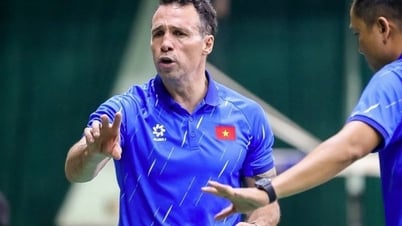

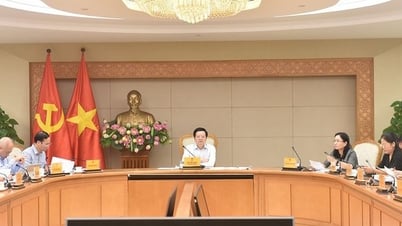

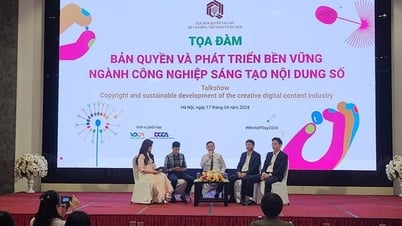





















Comment (0)